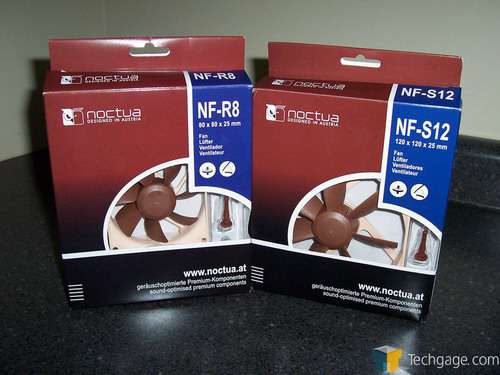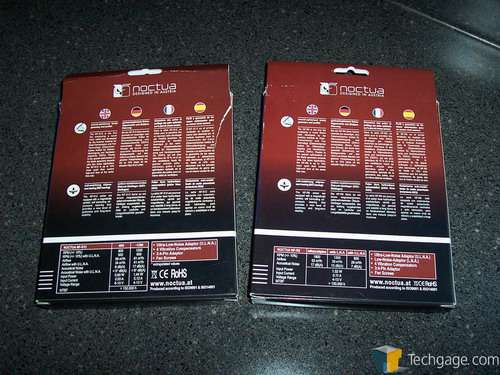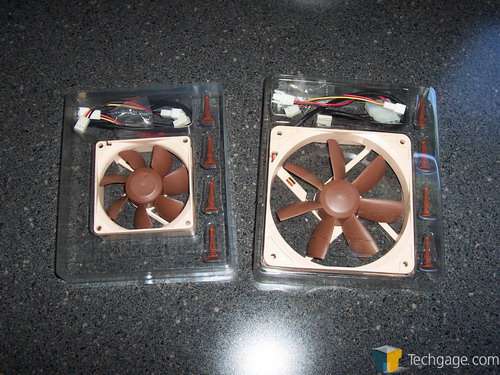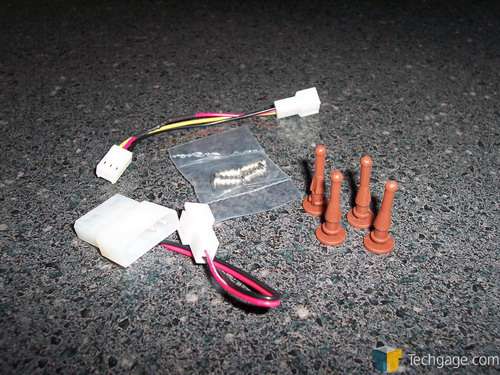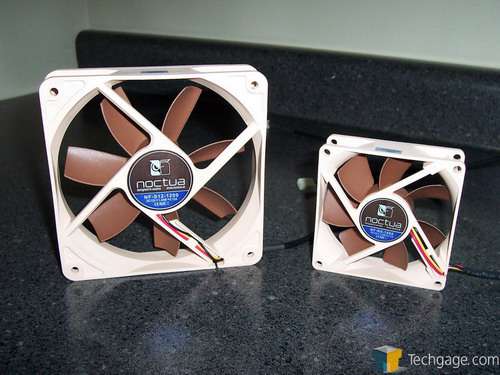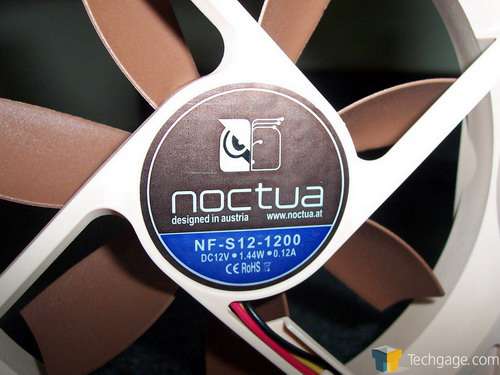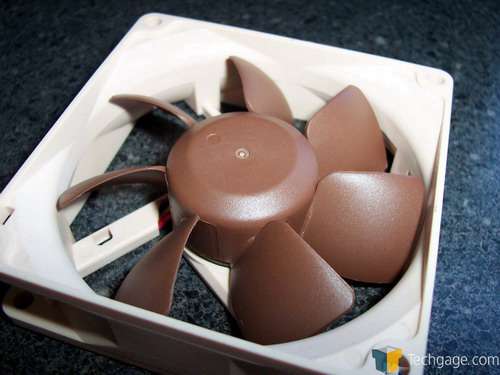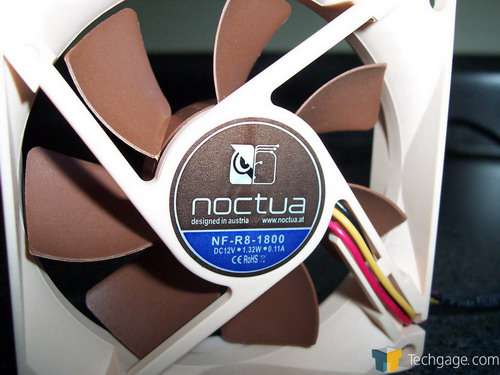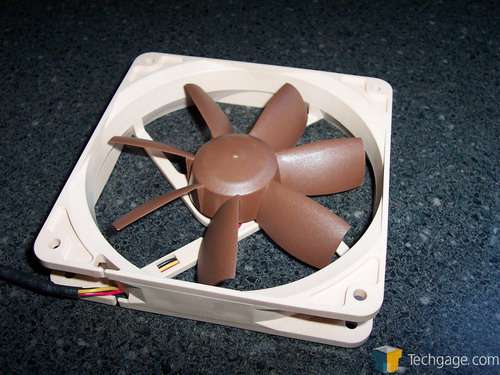- Qualcomm Launches Snapdragon 4 Gen 2 Mobile Platform
- AMD Launches Ryzen PRO 7000 Series Mobile & Desktop Platform
- Intel Launches Sleek Single-Slot Arc Pro A60 Workstation Graphics Card
- NVIDIA Announces Latest Ada Lovelace Additions: GeForce RTX 4060 Ti & RTX 4060
- Maxon Redshift With AMD Radeon GPU Rendering Support Now Available
Noctua NF-R8 and NF-S12 Fans, NC-U6 Chipset Cooler
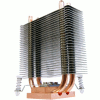
Page 1 – Introduction
|
|
As with most anything, time and consideration needs to be taken when designing a PC build. There are so many components that need cooling and sometimes the stock cooling isn’t enough to keep up with our needs. You can’t likely overclock your CPU as far on a stock cooler as you could on a more robust cooler using heat pipes to pull the heat away from the processor. The same can be said for the video card and chipset coolers as well.
We have seen manufacturers release more and more products with heatpipes on them and nowhere is this more obvious than on today’s motherboards. Just last month, Rob took a look at the Asus P5K3 Deluxe, Asus’ latest offering of the DDR3 variety. One look at that board will validate the heat pipe as the preferred method of cooling in today’s hardware.
What if your board doesn’t use heatpipes to keep itself cool? Many motherboards still use the heatsink and fan method while others can get away with passive cooling and there are advantages and disadvantages of both methods.
The primary advantage of the heatsink and fan pairing is that you have a constant flow of air across the chipset’s heatsink. The trade off is often is sound. The small fans can create a lot of noise and over time, are susceptible to failing. With a passive cooler, the sound issues of a fan are gone but so is the cooling performance of direct airflow.
Today we have a trio of products from the Noctua, a cooling company based out of Austria. We are looking at their uniquely designed 80 and 120mm fans, as well as their NC-06 chipset cooler.
Starting off with the fans, we notice that Noctua went the extra mile in their presentation. Being marketed as a quiet cooling solution, Noctua has included in their package a set of four rubber “vibration compensators”, otherwise known to me as nipples. One such device can be seen though the clear section of the packages.
Around the back, we see the information about the fans including airflow and decibel information.
Once out of the boxes, we see that each come in a clear shell with compartments for the accessories that ship with the fans. These include 4-pin Molex to 3-pin adapter cables, cable extenders, the aforementioned rubber vibration compensators and a set of screws should those rubber thingies not be used.
Side by side, it’s clear which one is the 120mm fan and which one is the 80. Both share the same color scheme and fin design and both have a power cable that is wrapped in what feels like a rubber-ish material.
Taking a closer look at the 120mm NF-S12-1200, we can see the noticeably different blade design. The fins are more vertical in the center and curve out from there. It’s a different designed blade but one that is supposedly able to move a significant amount of air.
Moving onto the 80mm, the NF-R8 is exactly the same as the NF-S12, only smaller.
Now that we have seen the fans themselves, let’s take a look at their specs. The main specs we are most concerned with is the airflow and noise. Let’s see how they compare.
- NF-S12
- Airflow: 81 m3/h
- Noise: 17 dB(A)
- NF-R8
- Airflow: 53 m3/h
- Noise: 17 dB(A)
As we can see, both fans share the same noise rating but the significant difference is the amount of air that each one pushes at that noise level.
Noctua is working hard to get the word out that their fans are quality, quiet cooling solutions that any enthusiast should consider when purchasing a better fan for their PC. If you have to have an 80mm fan, they have you covered and if a 120mm is what you are looking for, the NF-S12 should get your consideration as well.
With those out of the way, let’s take a look at the NC-U6 chipset cooler.
|
|
Support our efforts! With ad revenue at an all-time low for written websites, we're relying more than ever on reader support to help us continue putting so much effort into this type of content. You can support us by becoming a Patron, or by using our Amazon shopping affiliate links listed through our articles. Thanks for your support!




